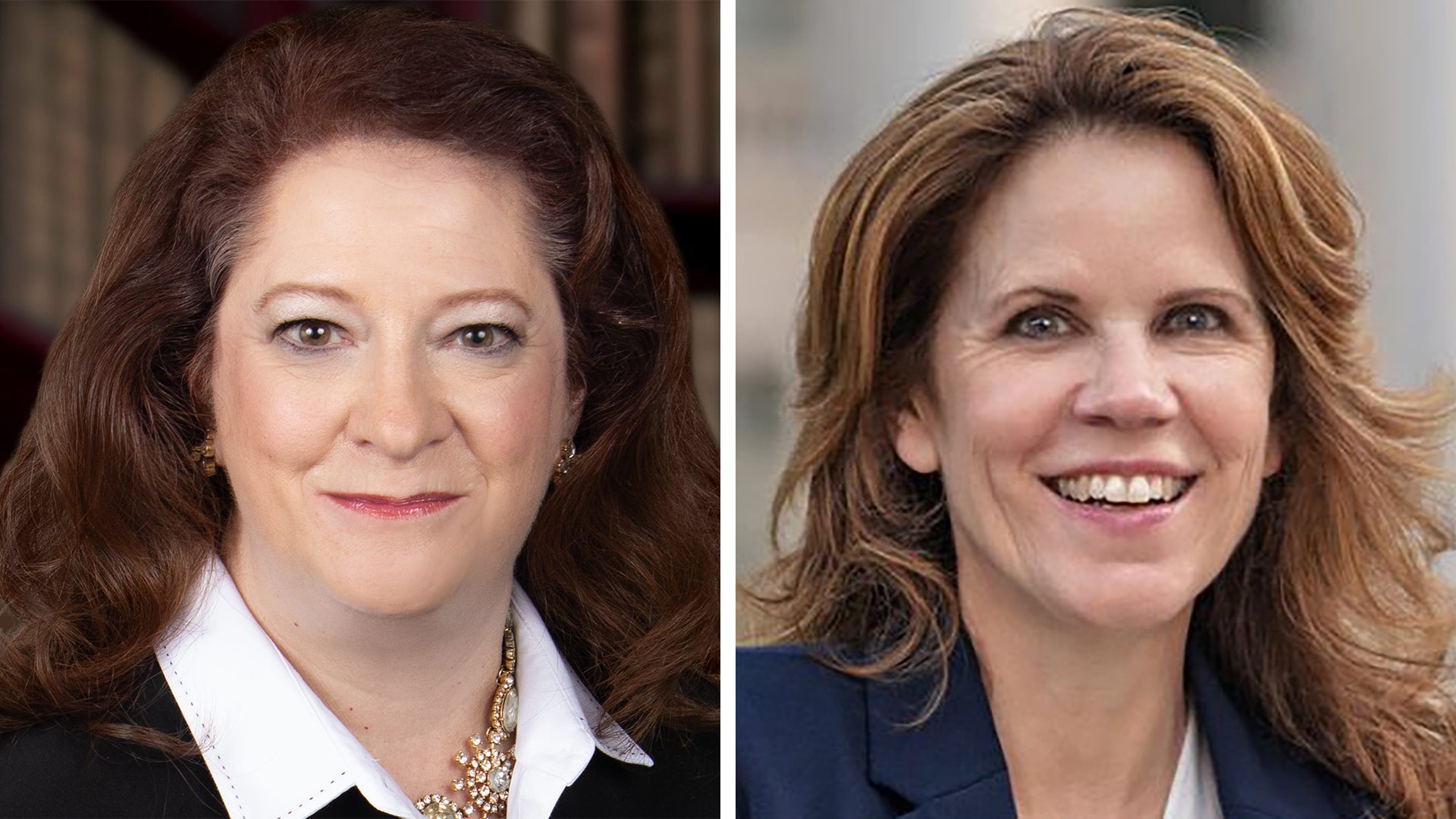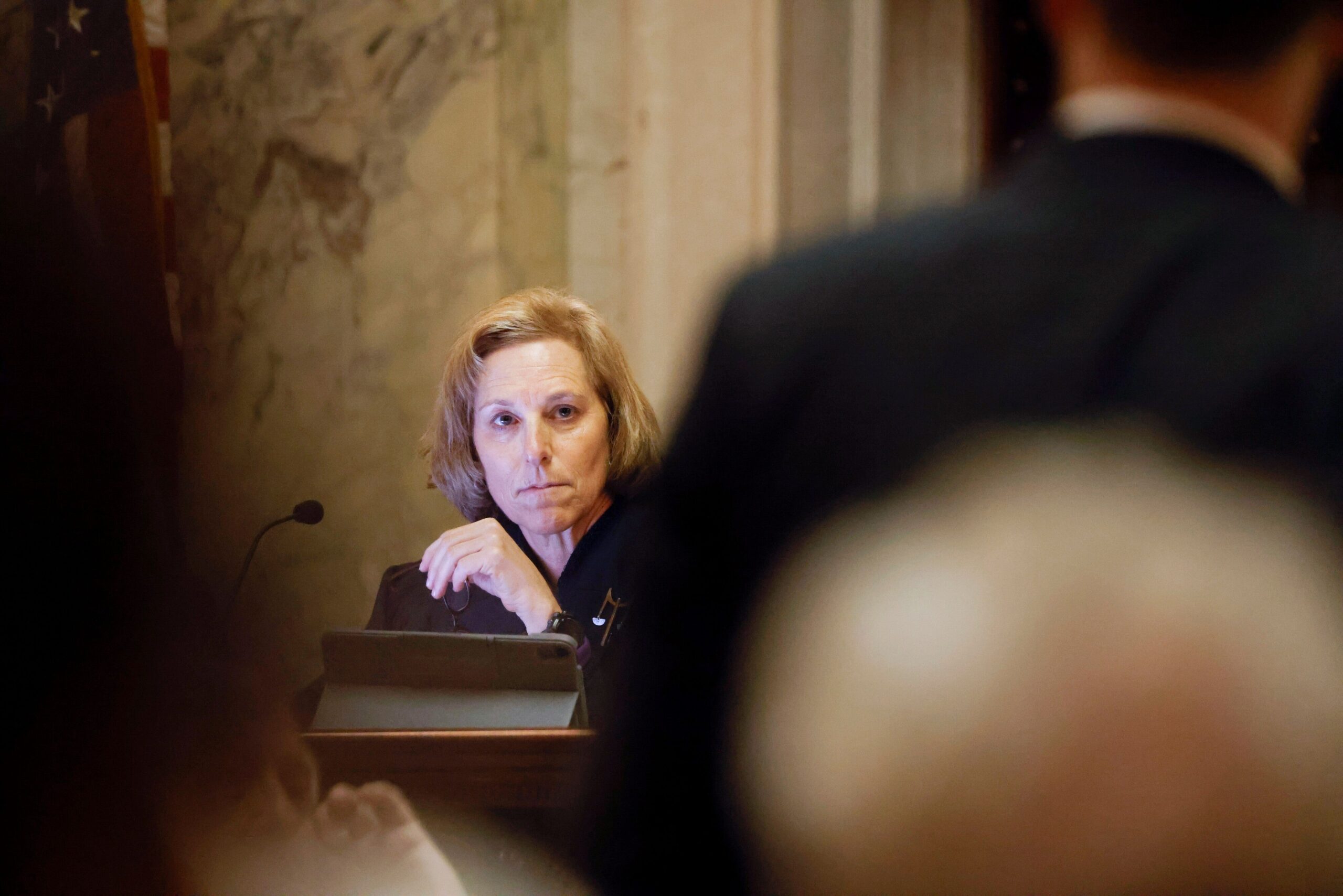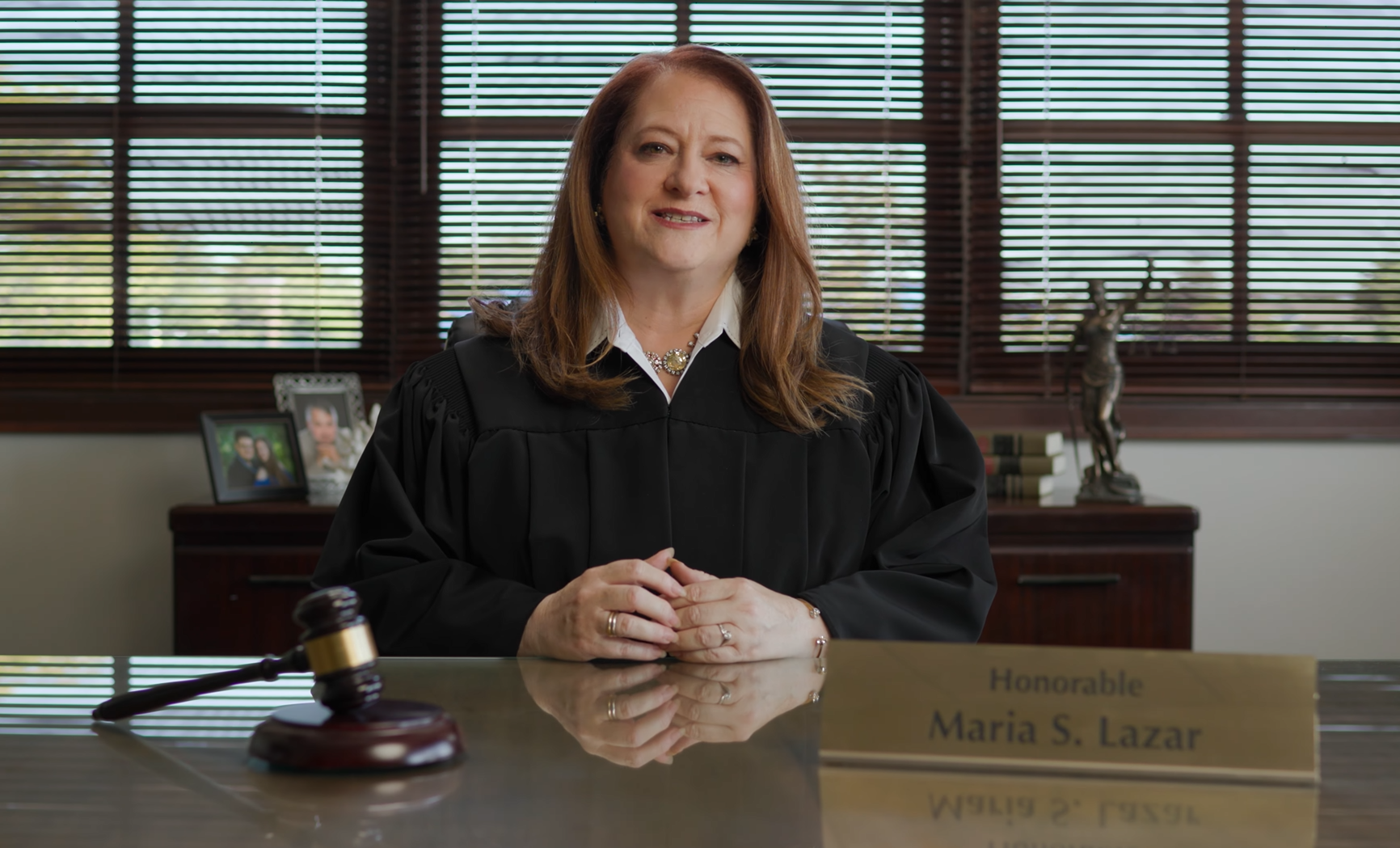There’s a well-established playbook for Supreme Court campaigns in Wisconsin, and it starts with this cardinal rule: You don’t have to be a judge to win, but it sure seems to help.
All kinds of lawyers are welcome to run for the court, but practically speaking, the pattern is clear: the winners tend to be prosecutors.
The races are officially nonpartisan, but that doesn’t seem to matter anymore. Winning candidates will tout endorsements from governors to U.S. senators.
News with a little more humanity
WPR’s “Wisconsin Today” newsletter keeps you connected to the state you love without feeling overwhelmed. No paywall. No agenda. No corporate filter.
Jill Karofsky, the candidate supported by Democrats in this year’s Supreme Court race, checks all of these boxes. And yet her sales pitch for the court almost invariably drifts to her exercise regimen.
She introduces herself as a former Division I college athlete, a high school state tennis champion and an “ultra-marathoner” who has completed two Iron Man triathlons. During an interview for this story, she said she’d stuck with her exercise routine during her campaign, running a 50-mile race in August.
This is not part of the usual campaign script, but it’s part of Karofsky’s identity, and she uses it to differentiate herself from her opponent, conservative incumbent Supreme Court Justice Daniel Kelly.
“I use this as an example because I have never been outworked or outhustled,” Karofsky said. “And there is no way in this race I’m going to be outworked or outhustled by Dan Kelly.”

Courtesy of Jill Karofsky’s campaign
New To Campaigning, No Stranger To Politics
Before this Supreme Court contest, Karofsky’s only campaign was a 2017 race for Dane County Court, a race she won with 58 percent of the vote to become a circuit court judge.
Prior to that, she was the head of crime victim services for the state Department of Justice. She also worked for about a decade for the National Conference of Bar Examiners and spent the decade prior to that working for the Dane County District Attorney’s office.
But while Karofsky is a relative newcomer to campaigning, politics runs deep in her family.
Decades earlier, she watched her mother, Judy Karofsky, run successfully for Middleton mayor. Judy Karofsky went on to work for other Democratic campaigns and administrations.
“She’s always been aware of the political atmosphere,” said Judy Karofsky in an interview. “But it was not part of her profession — of her personal goal — until she ran for the judgeship.”
Karofsky’s family has been friends with former Democratic Wisconsin Gov. Jim Doyle since before he began his own political career. Doyle says he met Jill Karofsky when she was just a kid.
“I watched her grow up. She was somebody you could tell from the earliest time on she was really going to do great things,” Doyle said.
Jill Karofsky went on to receive her undergraduate degree from Duke University and her master’s and law degrees from the University of Wisconsin-Madison.
Wisconsin Public Radio, © Copyright 2026, Board of Regents of the University of Wisconsin System and Wisconsin Educational Communications Board.







